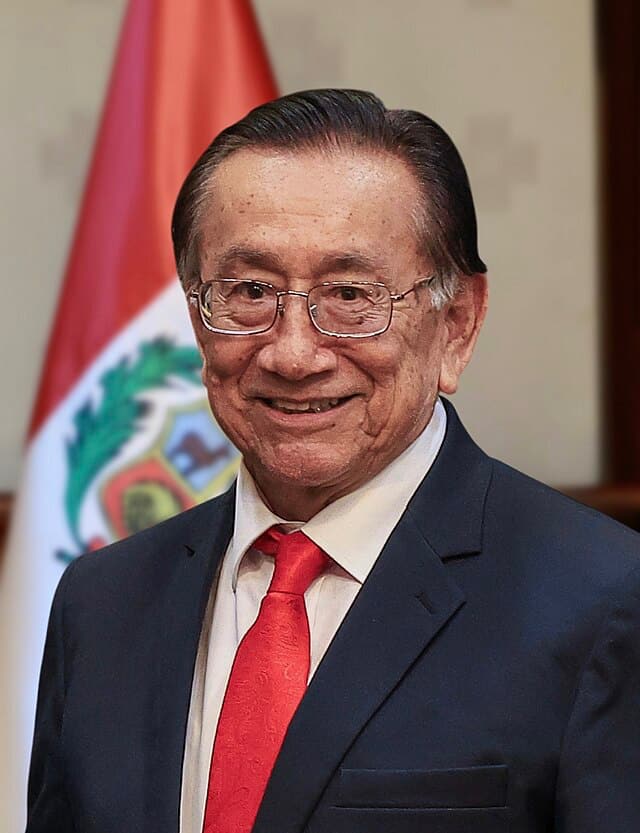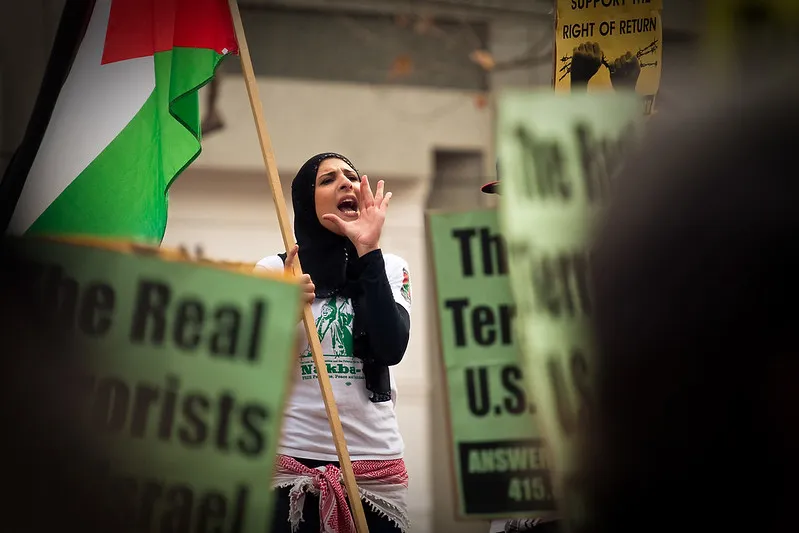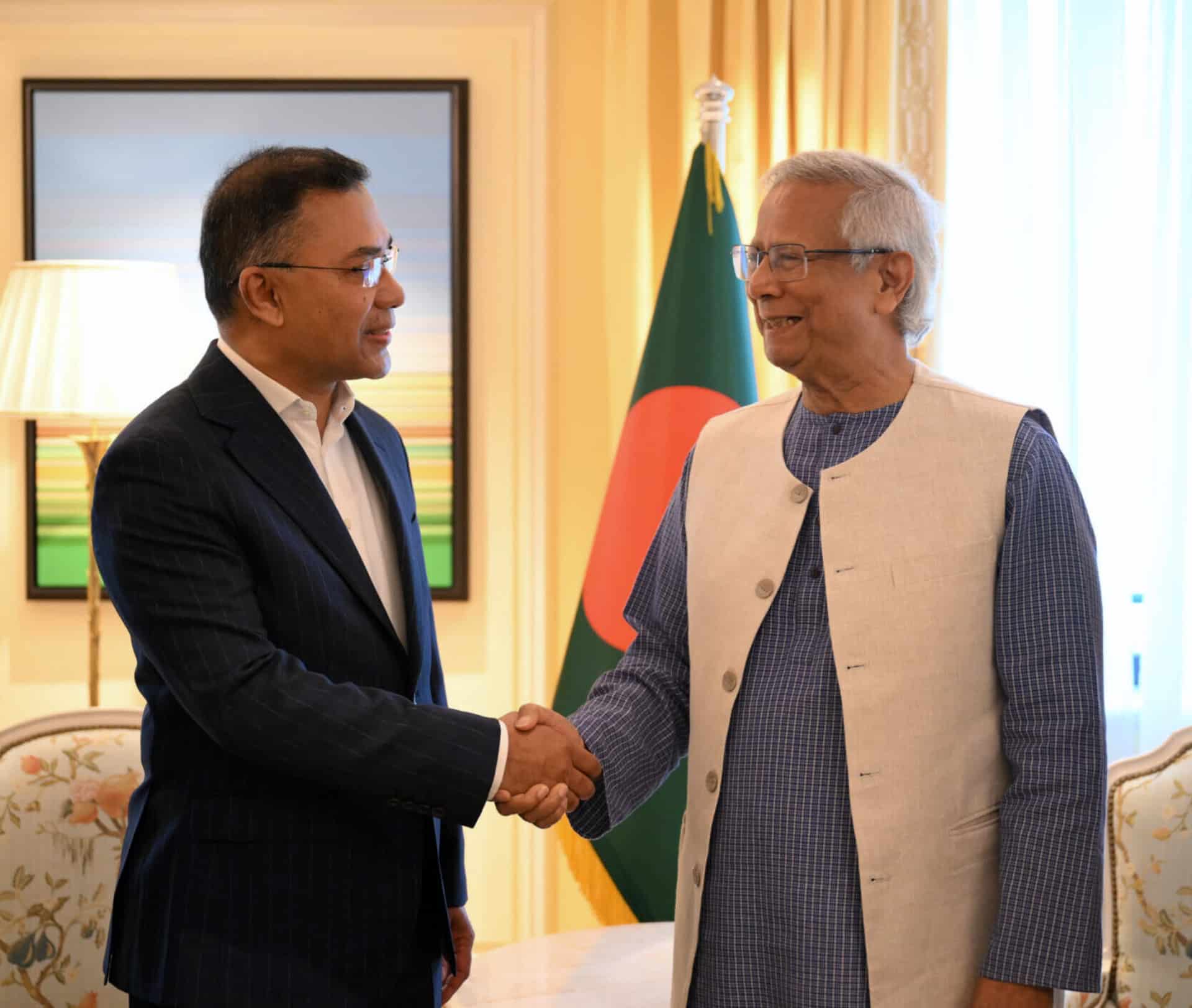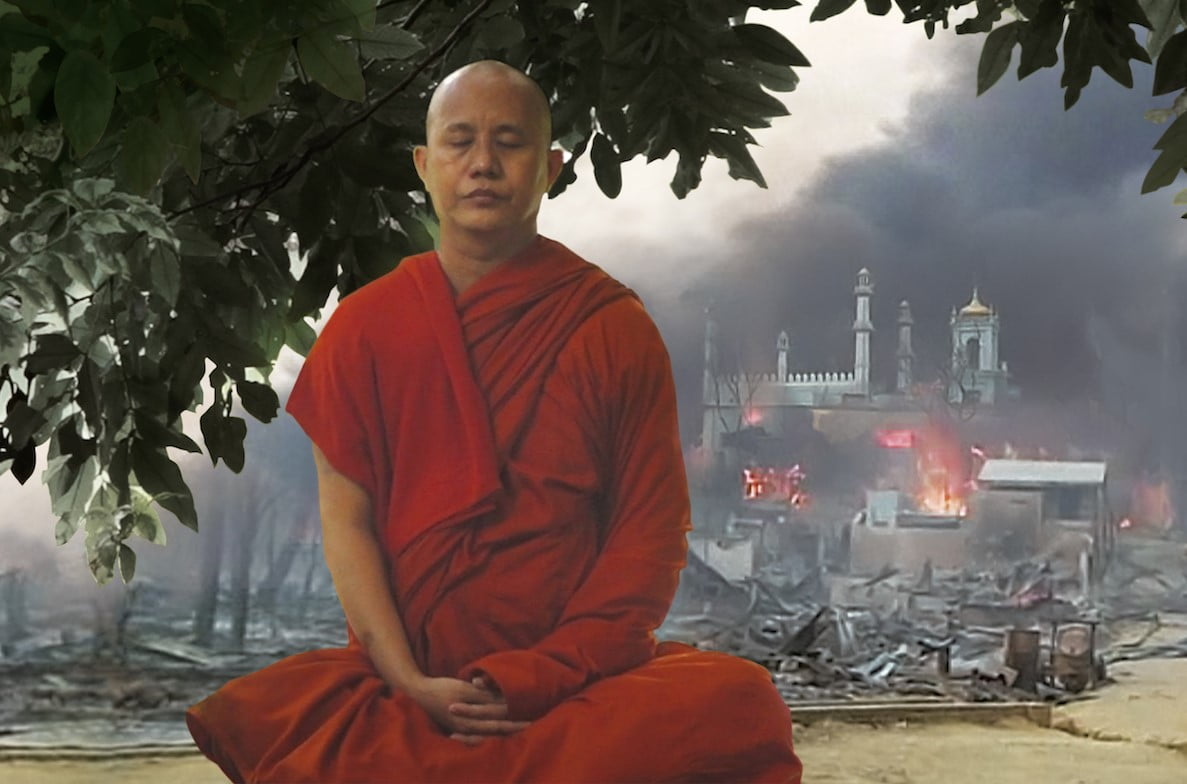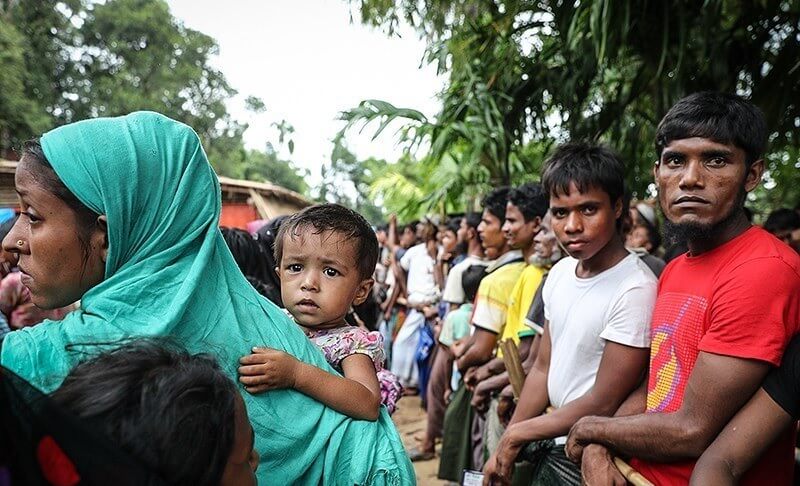’A death sentence in a different form’: Rohingya women on their struggle for survival in the world's largest refugee camp
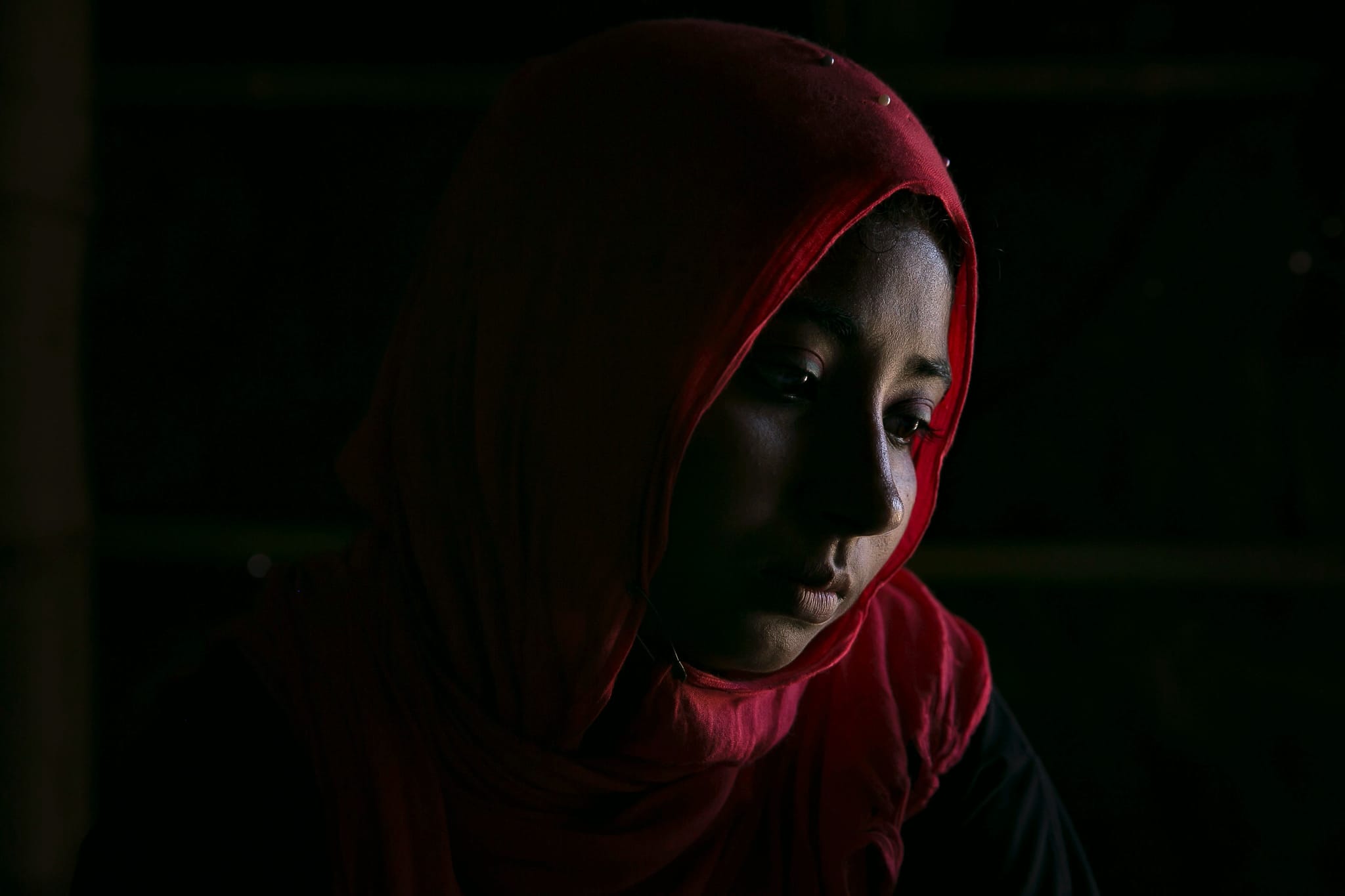
Years after escaping the bullets in Myanmar, the terror for Rohingya women in Bangladesh is now a slow-burning crisis of hunger, violence and despair. Three mothers fight to keep hope alive for a generation born into a world that has rendered them invisible.
In the sprawling, monsoon-lashed hills of Cox’s Bazar, Bangladesh, lies a metropolis of bamboo and tarpaulin that is home to nearly a million stateless people. This is the world’s largest refugee camp, a city born from the ashes of the 2017 genocidal violence against the Rohingya people in Myanmar.
Years have passed, but for women like Rofika, Rokiya and Sura Khatu, who anchor its fragile communities, life remains a perpetual state of emergency, a daily struggle against forces far beyond their control.
A home turned to ash
Before the camps, there was a life. For Rofika, 32, now living in the dense grid of shelters in Camp 1W, Ukhiya, it was a “simple but peaceful life” in her village in Rakhine State. Her family were farmers. Though they faced restrictions as Rohingya, they had a community, a home and a place where her children could “play freely,” a stark contrast to their current life.
That world was obliterated in August 2017. The stories of why they fled are seared into their minds with brutal clarity. For Rokiya, 28, a long-term resident of the Kutupalong Registered Camp (KTPRC), the violence that triggered the exodus was a nightmare she witnessed firsthand. Her village, she recalls, was targeted by the military and Buddhist extremists. “I witnessed brutal executions; my own father was shot in front of me,” she says. “I saw women being dragged away, and the air was thick with smoke from burning houses.”
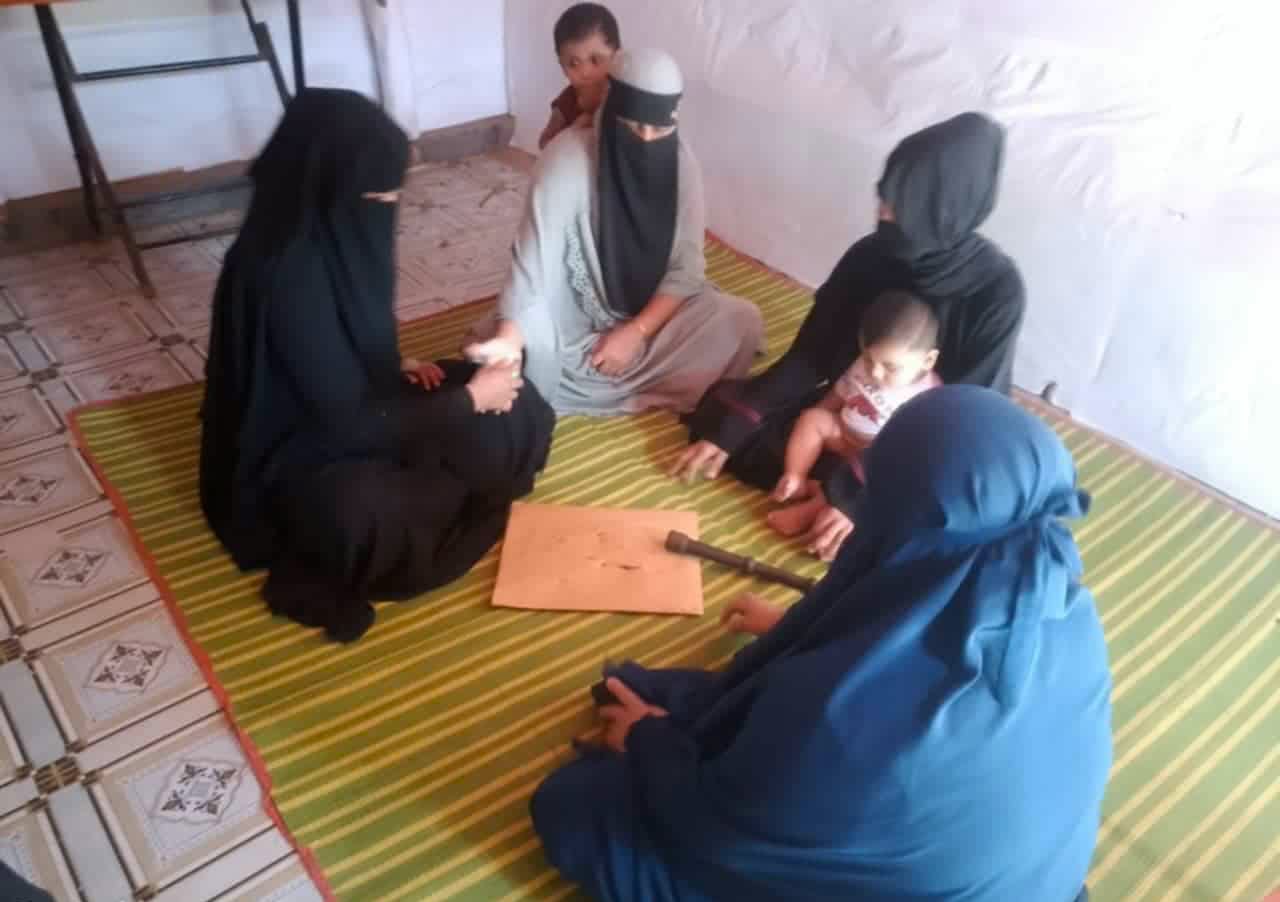
Rofika’s experience was tragically similar. She recounts the day the military and local Mogh mobs surrounded their village. “They set houses on fire and began shooting indiscriminately. I saw neighbours being dragged into the street and executed.” Grabbing her three children, she ran, joining a river of desperate people.
The journey itself was terrifying. Rofika walked for days without proper food or water, hiding from patrols and carrying her youngest the entire way. At the Naf River, a smuggler took nearly all their money for a place on a dangerously overcrowded boat. “I was certain we would capsize and drown.”
Her arrival brought no real relief, only a different kind of horror. For a newcomer like Rofika, the camp was a scene of “chaos and despair,” a muddy, barren area where the sheer scale of suffering was immediately daunting.
For those who were already there, the sudden influx shattered their world anew. From her vantage point in the KTPRC, Rokiya watched as the arrival of over a million people transformed everything. “The camp was overwhelmed,” she recalls. “What was once a somewhat organised settlement became a vast, sprawling city of bamboo and tarpaulin. Resources were stretched impossibly thin, and new, powerful armed groups emerged in the chaos, making the camp much more dangerous and volatile.”
Life inside the wire
Today, the fleeting relief of having escaped the bullets has been replaced by a different kind of terror. Their lives are governed by an official designation that offers no rights, only restrictions.
Since Bangladesh is not a signatory to the 1951 Refugee Convention, the Rohingya are not officially recognised as refugees. Instead, they are given a bureaucratic label— Forcibly Displaced Myanmar Nationals (FDMNs)—that denies them the fundamental protections and rights associated with that status.
Even for the small number like Rokiya, who hold the title of “registered refugee” from an earlier wave of displacement, the distinction has all but evaporated.
Rokiya explains that her registered refugee status in practical, daily terms, makes little difference. “The title does not put more food on my plate or make my children safer."
“The authorities are a distant, often unhelpful presence. The police are there to maintain order for the state, not necessarily to protect refugees," she says. “The Camp in Charge holds significant power over our lives. They control permissions for everything. While some officials are helpful, others are known to demand bribes for simple tasks.”
Into this vacuum of authority, a more sinister power has grown. “In the beginning, there was chaos but also a sense of shared survival,” Rokiya explains. “Now, well-organised criminal factions have carved out territory. They fight each other for control of the drug trade and smuggling routes, and ordinary refugees are caught in the middle.”
Rofika agrees, stating flatly that the camps are “controlled by fear.” Armed groups involved in drug trafficking and kidnapping operate freely. “After dark, people stay inside their shelters. I know of people who have been kidnapped for ransom and families threatened.”
For women, the danger is constant and personal. “Women are particularly vulnerable,” Rokiya explains. “They fear being kidnapped for ransom or being sexually assaulted. When going to the latrines or bathing areas after dark, they go in groups for protection.”
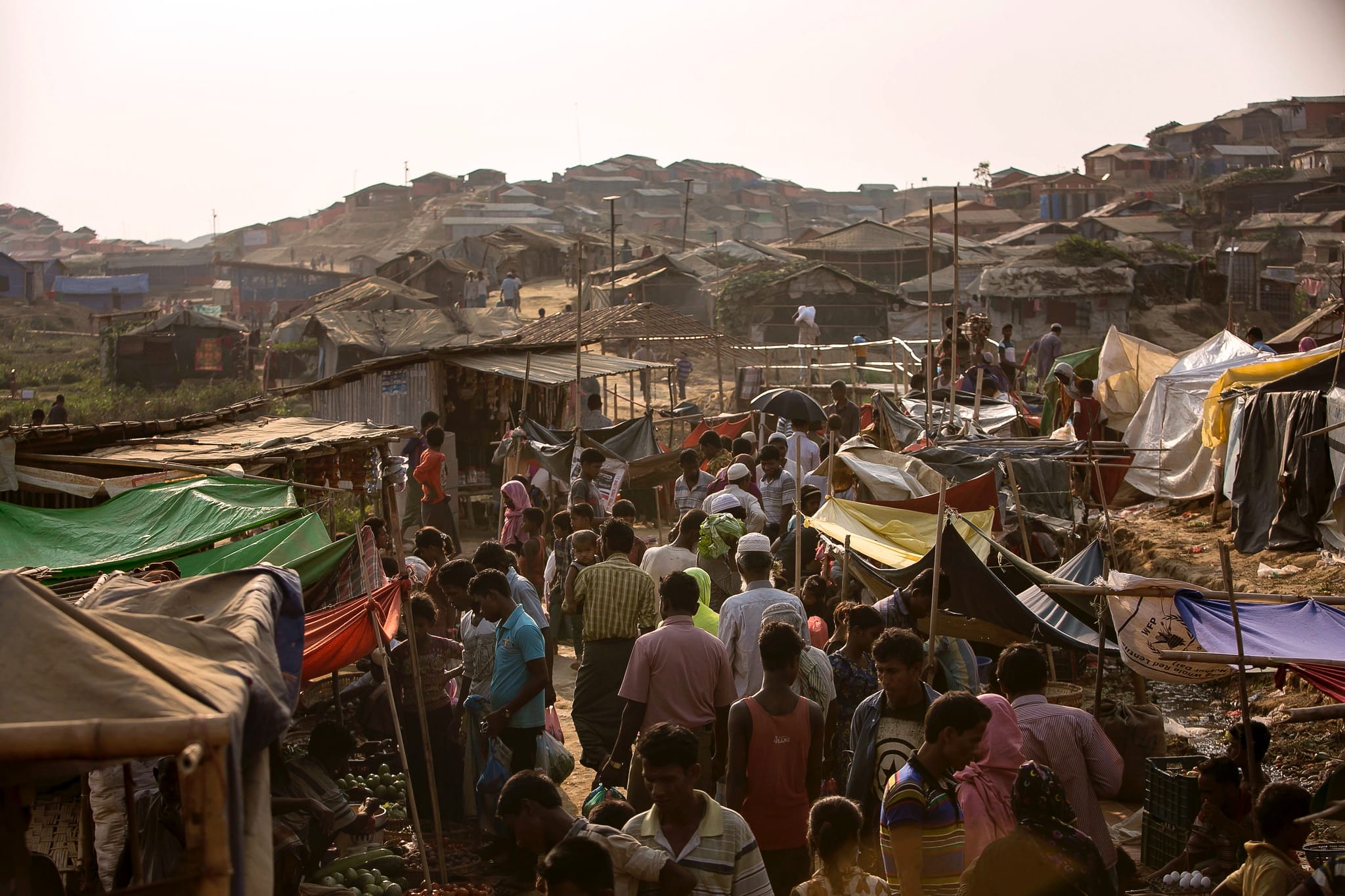
For Sura Khatu, 32, who now lives on the remote island of Bhasan Char, the camp’s pervasive violence became a breaking point. After her child survived a sexual assault by a close relative, she felt there was “no protection left.” This tragedy, compounded by the general violence and threats from criminal groups, made her believe that the camp was a poisonous environment for her children.
The escape she chose was Bhasan Char, a name that translates to “floating island.” It was the Bangladeshi government’s ambitious, controversial answer to the camps—a remote sliver of land hours from the mainland, that had been eyed for relocation since 2015.
From the start, the plan was plagued by criticism: the island was newly formed, dangerously prone to the Bay of Bengal’s ferocious cyclones and profoundly isolating. But in the desperate aftermath of 2017, as nearly a million refugees overwhelmed Cox’s Bazar, the government pushed forward, framing the island as a necessary solution.
Today, while 30,000 to 35,000 Rohingya live there, the core concerns remain—over sustainability, the true voluntariness of some of the transfers and the stark restrictions on freedom of movement.
Yet for a mother fleeing a living hell, the promise of safety was enough. Sura Khatu took the chance, joining the others relocated in a desperate bid for a life free from fear.
The mathematics of hunger
Layered on top of this fear is the gnawing reality of hunger. International funding has dwindled, and in April 2025, the World Food Programme (WFP) was forced to slash monthly food rations to just $6 per person. For families forbidden from working, the impact is catastrophic.
“The assistance is a lifeline, but it is not enough,” says Rofika. “With the cuts, it’s impossible. With rising prices, it buys less and less. My children are often hungry.”
The e-voucher system introduced by the WFP in collaboration with UNICEF, which provides digital credits that can only be spent at designated outlets offering a narrow range of goods, has become what Rokiya calls an “illusion of choice”. With the reduced budget, “I have to choose the cheapest calories—rice, oil, lentils—to make it last the month. Fresh fish, chicken and vegetables are luxuries I can rarely afford.”
The result, she adds, is constant physical and mental anguish. “The food cut means constant hunger. I have chronic headaches from the stress of not knowing how I will feed my children next month.”
This forces women into desperate trade-offs. To buy medicine or supplies for her children’s schooling, Rofika is forced to sell a portion of her monthly food ration on the camp’s black market. “It means we have even less to eat, but I see no other option,” she says.
More than 60 kilometres away on Bhasan Char, Sura Khatu faces the same devastation. With her four children, “the math is simple,” she says.
“Less money means less food. Malnutrition is a visible problem. The children are thin and often sick.” Like many mothers, she has to skip meals herself to ensure they have a little more. The food cuts feel like a punishment.
The island cage: a safer prison?
The journey to Bhasan Char began on a large government ship, filled with families clinging to a fragile sense of optimism. “The government officials said it was voluntary… and it was long and many people were seasick,” Sura Khatu recalls, “but we arrived with a faint hope that the worst was behind us.”
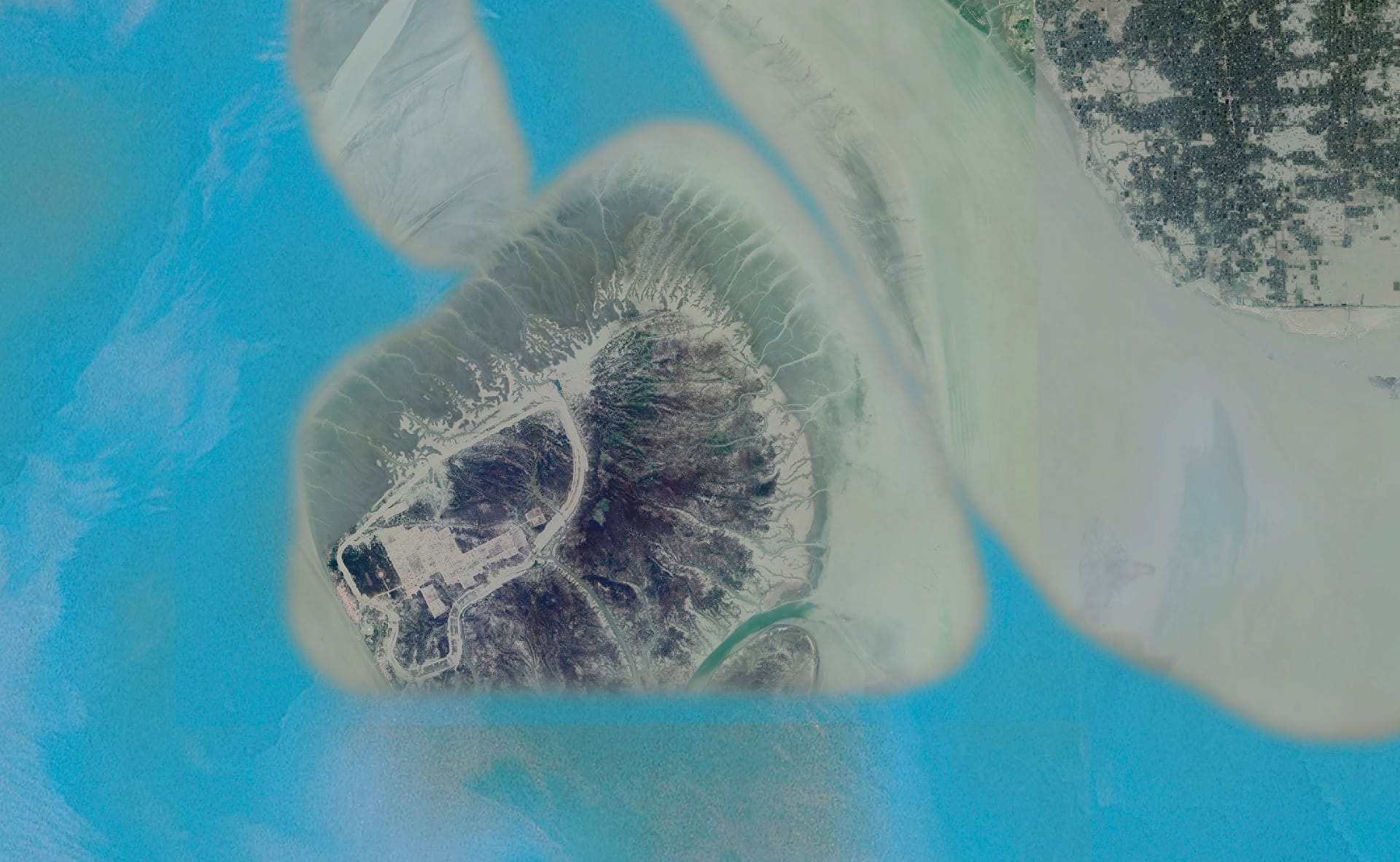
The reality on the island is a paradox. In some ways, “it is more orderly. The shelters are more permanent, and the grip of the armed gangs from Cox’s Bazar is not as strong here.” But the promises were hollow. “The promise of jobs was empty. Not at all,” she states. “They are even more isolated, and the feeling of being cut off from the world and their relatives is profound.”
Movement is strictly controlled. “To visit family in Cox’s Bazar is extremely difficult,” she explains. “You need official approval, which is rarely granted. I’ve heard some people pay large bribes… but I have no money for that. I feel completely severed from my past life.”
Even basic supplies are harder to come by. The voucher system has “even fewer choices,” and with no real market, there are no “informal ways to supplement” the meagre rations. “We are trapped by the sea,” Sura Khatu says.
The greatest challenge, she adds, is the isolation. “When there is a medical emergency, it is a major crisis… It feels like we have been hidden away.” For her children, the island is a lonely wasteland. “The education is basic. The children have nothing to do and nowhere to go. The island is flat and barren, with no trees for shade or places to play.”
Does she regret it? “It is a difficult question,” Sura Khatu muses. “I do not miss the terror of Cox’s Bazar, but I regret the false promises. I traded one type of prison for another—a more secure one, but a prison nonetheless.”
Hearing stories like Sura Khatu’s is why many in Cox’s Bazar, including Rokiya, chose to stay in the overcrowded camps. “My entire extended family is here… and that network is my only support system,” Rokiya explains. “The risk of being completely cut off seemed far worse than enduring the known dangers of the camp."
A future held hostage
The deepest fear shared by all three women is for their children. They are raising a generation born into what Rofika calls an “open-air prison,” with no citizenship and a future “sealed as stateless people.”
Rokiya fears her children are growing up in an “intellectual vacuum,” a potential “lost generation.” She explains, “The Bangladeshi government does not allow a formal curriculum or allow Rohingya children to integrate into local schools.”
Sura Khatu’s hope for her four children is just as fundamental: “that they will be granted citizenship somewhere and have the right to a future… to be educated and to have choices, something I have never had.”
This constant uncertainty creates a “deep, underlying anxiety that never goes away,” says Rofika. “This stress affects everyone—parents are short-tempered, children are nervous.”
In the face of this uncertainty, they find strength in each other. Rokiya “finds solace in her faith and in the community of other women. They share their struggles, look after each other’s children, and offer emotional support. But the trauma is always there, resurfacing in nightmares.” For Rofika, her children are her only motivation. “I must be strong for them,” she says. She also points to the “small acts of kindness from other refugees… sharing food, looking out for each other’s children,” which provide a flicker of hope.
On Bhasan Char, a similar bond exists. “There is a sense of community here,” Sura Khatu notes, “but it is also bonded by shared trauma and a shared sense of being forgotten by the world.”
Their hope for return to Myanmar is conditional and fading. Risky sea journeys to countries like Malaysia are a known, desperate alternative, but one Rofika rejects. “The risk is too great, especially with children. The trauma of the journey from Myanmar was enough.”
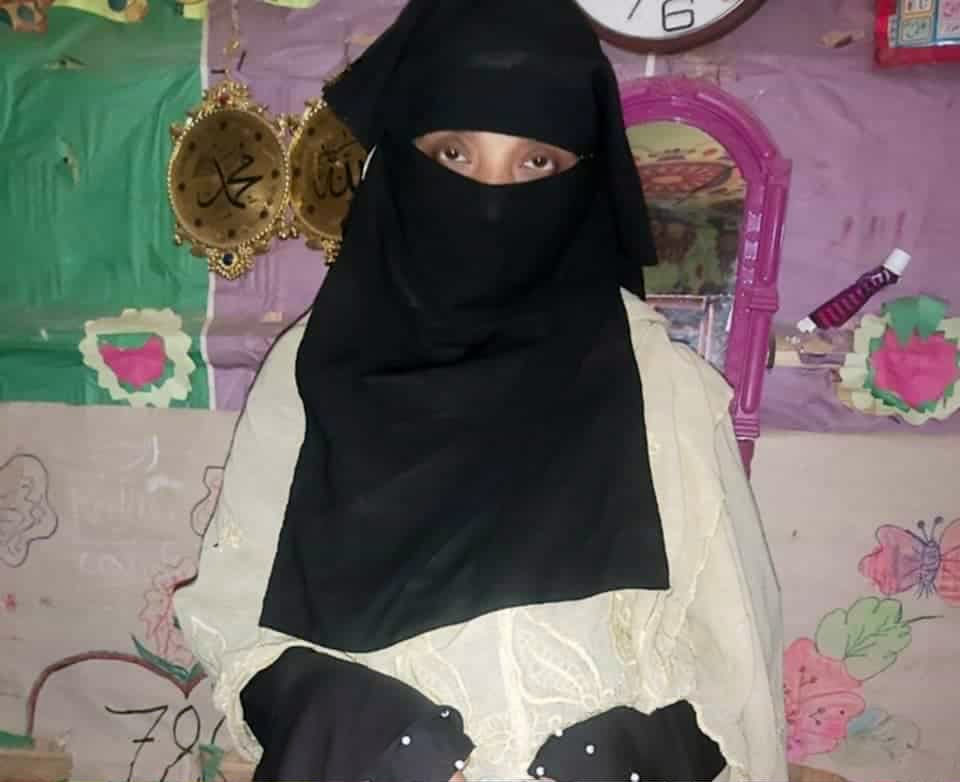
True return would require a transformed Myanmar. “The military would have to be held accountable for their genocide,” Rokiya insists. “Our citizenship must be guaranteed, our safety ensured, and our stolen land and homes returned.” Without these guarantees, she says, return is just a “death sentence in a different form.”
As the years pass and the world’s attention moves on, a deep pessimism has set in. “Myanmar doesn’t want us, Bangladesh tolerates us at best, and the world is forgetting us,” Rokiya says bleakly. From her island prison, Sura Khatu echoes this despair. “My faith is fading. I fear we will be left here on this isolated island forever, a permanent problem that no one wants to solve.”
When asked for their final plea, all three women made an appeal for dignity. Sura Khatu’s message to the Bangladesh government is to grant them “freedom. The freedom to work and earn a living, the freedom to move, and the freedom to choose our own future. Treating us like dangerous prisoners only deepens our suffering. We are victims, not criminals.”
“I wish people understood that we are not here by choice,” Rofika pleads. “The world sees us as a burden, but we are human beings who had lives, dreams and homes.”
And Rokiya’s plea asks the government to understand the full weight of their displacement—not as a logistical problem to be managed, but as a future being lost in their care. More than anything, she misses “the feeling of safety and belonging… a home that was mine,” she says.
“I miss the future I thought I had—a future where my children could grow up free and proud of who they are, not stateless refugees defined by their suffering.”


